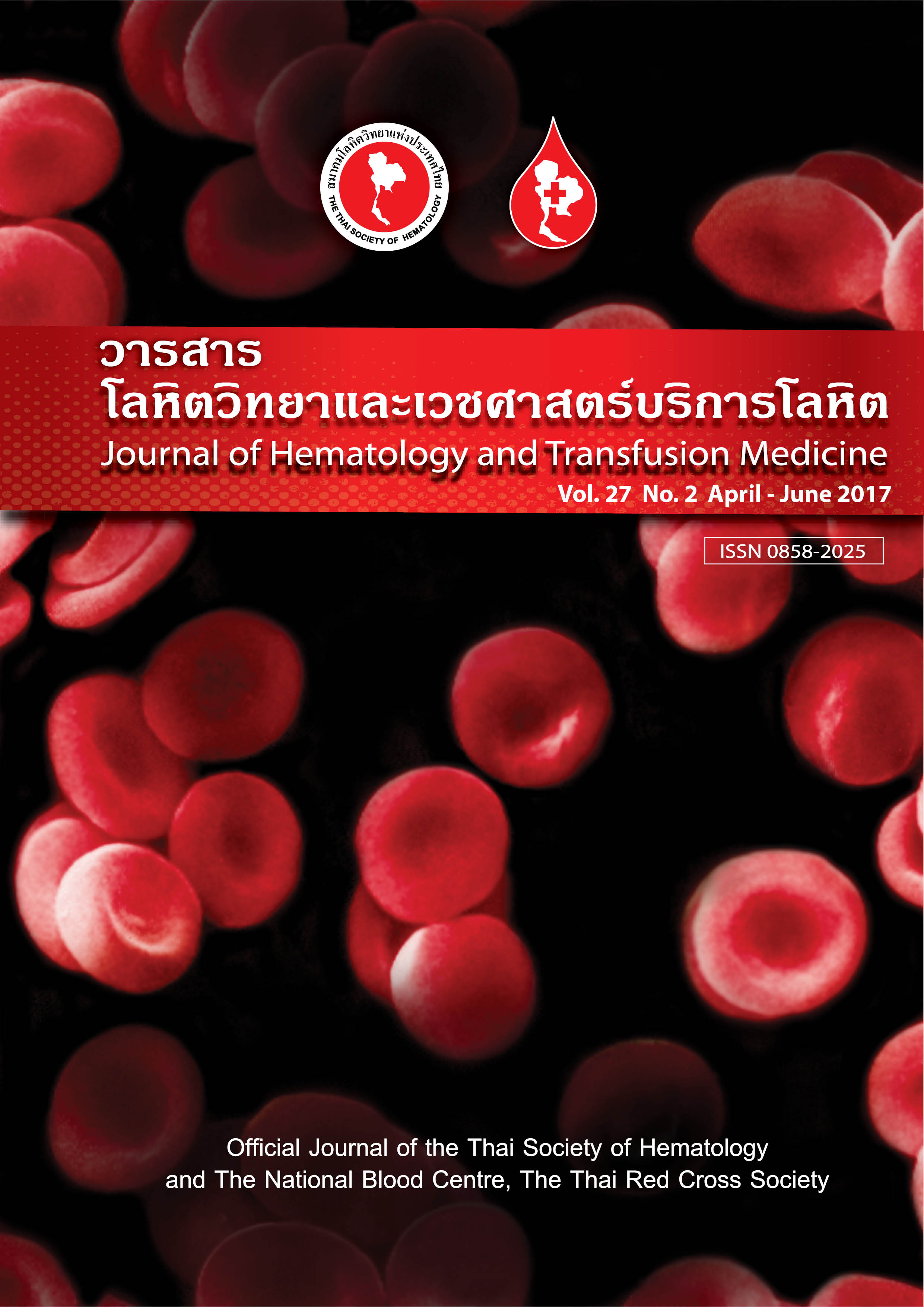การนำผลการตรวจความผิดปกติระดับโมเลกุลไปใช้ในการดูแลรักษา ผู้ป่วยโรคมะเร็งไขกระดูกเสื่อม
บทคัดย่อ
บทคัดย่อ
โรคมะเร็งไขกระดูกเสื่อม (Myelodysplastic syndrome, MDS) จัดเป็นโรคมะเร็งเม็ดเลือดชนิดมัยอิลอยด์ชนิดหนึ่ง ที่
มีลักษณะของโรคหลากหลาย บางส่วนมีการด????ำเนินโรคไปเป็นมะเร็งเม็ดเลือดขาวเฉียบพลัน (acute myeloid leukemia, AML) ได้
ผู้ป่วยจะมีอาการและอาการแสดงที่เกิดจากเม็ดเลือดต????่ำ การตรวจไขกระดูกพบเซลล์ที่มีลักษณะรูปร่างผิดปกติ นอกจากนี้ยังพบความ
ผิดปกติของโครโมโซมร่วมด้วย ปัจจุบันมีเทคนิคการตรวจซีเควนซิ่งใหม่ (next generation sequencing, NGS) เพื่อตรวจหาการ
กลายพันธุ์ของยีนในโรคไขกระดูกเสื่อม ซึ่งข้อมูลดังกล่าวสามารถน????ำไปใช้ประกอบการพิจารณาการดูแลผู้ป่วยได้ในทุกระยะของโรค
ตั้งแต่ช่วยในการวินิจฉัย บอกการพยากรณ์โรค ช่วยในการตัดสินใจวางแผนการรักษาโรค บทความนี้จะกล่าวถึงการน????ำข้อมูลการกลาย
พันธุ์ของยีนไปใช้ในทางเวชปฏิบัติเพื่อประกอบการดูแลรักษาผู้ป่วยโรคมะเร็งไขกระดูกเสื่อม
Abstract
Myelodysplastic syndromes (MDS) are heterogeneous disorders which manifest various clinical features.
Some patients present with indolent behavior but some progress to acute myeloid leukemia. Patients with MDS
present with cytopenia(s), dysplasia of blood cells and approximately half of them showed abnormal cytogenetics.
Next generation sequencing (NGS) revealed somatic mutations in MDS which involved in various mechanisms
of pathogenesis. Somatic mutations have an impact on many steps of disease management from diagnosis and
prognosis to treatment plans. This article will conclude utility of molecular information to clinical practice in
MDS patients.



